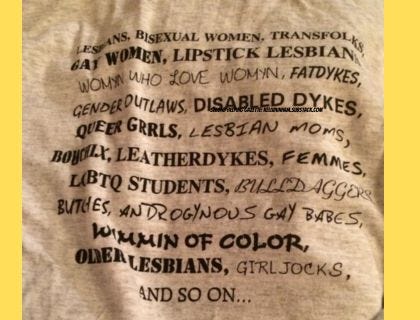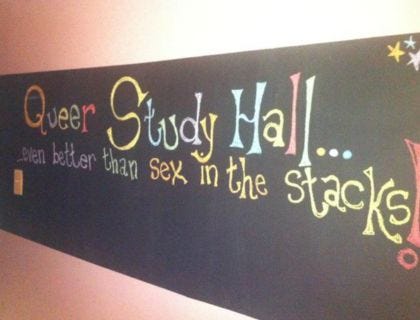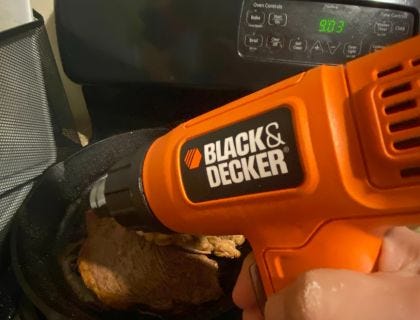Everything I Needed To Know About Aging I Learned At Queer Study Hall
Or, What If We Had Something To Learn
Happy Monday! Last week, I did an AMA (not Against Medical Advice, nurses, Ask Me Anything), and my friend Chris, who has been both a pal since the 90s AND was the first radical faery I ever met, asked about my maintaining relevance in age strategies. I think this is more of a series than a single question, but I’ve been thinking a lot about it and this is what I’ve got so far. If you’d like to submit a question or even just a suggested theme, please comment below! Later this week, at Holly H’s suggestion, I’m writing about concern trolls and families, and I WROTE YOU ALL A BOUNDARY PARODY SONG!
I'm happily a GOFF New Yorker, meaning Going Out Feet First. Because I am a leaseholder on a rent-stabilized apartment, I plan to move from this apartment only under the following circumstances: 1. I'm dead 2. The Apocalypse 3. The Zombie Apocalypse.
Whichever comes first.
Therefore, the equation I find myself living in:
GOFF status PLUS three-bedroom apartment MINUS potential roommates of my own age (folks have their own rent-stabilized apartment, are partnered, or have moved to a municipality less architecturally hostile to older people and people with disabilities) EQUALS living continually with folks as much as 30 years younger than me.
I love life in this unintentional intentional community we call Queer Study Hall. It can be challenging for all of us at times (e.g., the Great Shower Wars of 2023, a story perhaps for another day), but my heart believes in community living.
There are some chef's kiss moments, like when my visiting girlfriend and I had gotten up to work at 5 am, and just as we finished preparing breakfast, another roommate walked in the front door with their Grindr date. We all sat down and ate oatmeal together. Can a Queer Intergenerational Household really get any better than that?
In 1998 I was part of a small group of organizers for the first Philadelphia Dyke March. We became embroiled in a difficult controversy around trans inclusion where the battle lines were drawn almost entirely along generational divides. The short version, and the part that everyone involved would agree upon, was that both sides really believed in what they were fighting for and that feelings on both sides were really hurt.
We had a community meeting after the March. It started with a Very Stern Talking To from the Older Dykes who disapproved of our admittedly, at times, clumsy attempts to make sure everyone who related to the word dyke in some fashion felt welcome at the March.
"We fought for that word, dyke; it's like you don't even understand what it means," started one of the Older Dykes.

"You're the laughingstock of the entire lesbian world," said another Old Dyke. That seemed like hyperbole, but we still wondered if it could be true. Since she was Australian.
"Oh, come on," said A Third Older Dyke, who was far and away, always The Most Crabby Dyke In The Room.
We tensed for what would come next.
She continued, "What if we listen to them? What if we have something to learn?"
I wouldn't say the conversation went smoothly after that, but it became an actual conversation. In the end, we all came to, well, "understanding" might also be overstating it, but we could acknowledge the other side's context enough to be at the same protest or softball game without coming to blows.
Which is all any of us really needed.
Fast forward to late 2020, a millennial roommate (Roommate M hereafter) and I were interviewing a potential Queer Study Hall resident, a friendly queer in their early 20s. Roommate M and I apologized for how depressing and dark our common space was.
"What about…" Potential Roommate Z hesitated.
"We couldn't just. I mean…what about a lamp?"
It was a very real What if we listen to them? What if we have something to learn? Moment.
Potential Roommate Z became Actual Roommate Z and, in their two years at Queer Study Hall, completely revitalized the common space. They added, predictably, lamps. They also suggested it might be safer if we had a working smoke and CO2 alarm.
Our front hallway was burdened with a 27-year-old Ikea bookcase listing at a 60-degree angle. It was a Leaning Tower of Queer Knowledge, threatening to dump our collected libraries onto the head of anyone who made the mistake of walking too hard or breathing too close. Z asked if we were keeping it for sentimental reasons.
Not exactly, said Roommate M and I, "we just didn't…"
Roommate Z gently finished, "Feel like you could expect or deserve more?"
"Oh, it's definitely not that," I said.
Not exactly, said Roommate M and I, "we just didn't…"
Roommate Z gently finished, "Feel like you could expect or deserve more?"
"Oh, it's definitely not that," I said.
Because it was indeed most definitely that.
What if we listen to them? What if we have something to learn?
Before I continue, I should mention that Roommate Z did not grow up in some magically Perfect Inclusive Land where their parents gave them lots of choices, asked about their feelings, or inquired over a healthy dinner of quinoa and kale if there was anything Roommate Z wanted to tell them about their gender identity or expression.
Roommate Z is dealing with all the family trauma that previous queer generations have. But despite this, it seems that not having stewed in the same level of homophobic cultural soup as older queers, they're somehow not able to hate themselves as thoroughly as we have. Or ask as little for themselves.
Do you know what else Roommate Z did that year, aside from making Queer Study Hall less hovel and more home?
When –despite Z's extensive efforts to rectify the situation, the folks at their job still wouldn't respect their pronouns– Roommate Z went and got themselves a different job.
I love my Gen X compatriots, but this is occasionally the kind of thing we whisper about. We don't want to say precious or snowflake because, c'mon, we're not Boomers, and plus, we've benefitted so much from the gender boundaries having been expanded in the last decade or so. But we'll couch it as faux worry. What if the kids are too tender? Will they be able to survive?
Last night I had Roommate Z and their Primary Polyamorous Partner back to Queer Study Hall for dinner.
They're accustomed to my old-school cooking methods (I was literally making them meat and potatoes), so I'm not sure they were entirely surprised when I pulled out my Black and Decker electric heat gun to pre-sear the steak.
"The smoke alarm goes off if you do it on the stovetop," I offered. As if that explanation made my use of power tools for cooking seem entirely reasonable.
Roommate Z grabbed the stepladder from the hall closet, quickly climbed up, pulled on the smoke detector, and said, "When I installed it, I thought of how inconvenient it would be to go off when you're just cooking. So I put up with a magnet so you could just, um, take it down for a minute."
Again.
What if we listen to them? What if we have something to learn?
Are we truly worried about this generation of queers? Or is that their lack of tolerance for transphobic or homophobic nonsense or –even using power tools to cook– triggers not just our memories of who we were but who we are, even sometimes today?
My fellow Gen X'er friend Chris is certainly not a person that needs this essay-turned-lecture, but he did ask how I thought about staying relevant as I transitioned from adult to older queer. I'm not sure I know with any certainty how to remain relevant, but I do know one way to maintain a connection with the next generations of queers is to keep asking ourselves this question.
What if we listen to them? What if we have something to learn?
Rather listen? Here ya go!







Not sure how old you are, exactly, but you make a lot of sense. I have to fight my biases against younger people (for various reasons). I guess one thing I'll never get over is the ease with which "they" accept (depend on) digital communication and social media. I experience anxiety if someone sends me a TikTok link on my phone, and I keep my phone free of that, of email and of Facebook. It's a PHONE, not a desktop computer! If I looked at everything that was sent to me I'd have NO TIME left in my life to do anything else. One thing I've noticed for sure: younger people do not talk or think about DEATH as much, haha. Most of them, anyway.
Thanks for the restock btw